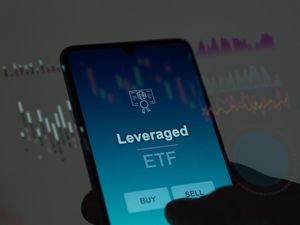CHICAGO, March 15, 2023 (GLOBE NEWSWIRE) -- Despite a return to something more closely resembling pre-pandemic levels in 2022, the TransUnion (NYSE: TRU) 2023 State of Omnichannel Fraud Report found that digital fraud continues to rise. According to proprietary insights from TransUnion’s global intelligence network and a specially commissioned consumer survey, the pivot to increasingly digital transactions since the beginning of the pandemic means the overall risk to individuals and organizations is even greater than it was pre-pandemic.
The study showed that 4.6% of all customers’ digital transactions globally were suspected to be fraudulent. This percentage is in line with the rates found in 2019. However, despite the similarities to the percentage prior to the pandemic, because the number of transactions conducted digitally has markedly risen in the last few years, the total volume of suspected digital fraud attempts has increased dramatically. Globally, such attempts have increased by 80% from 2019 to 2022, while rising 122% for digital transactions originating in the U.S. during that time.
“The pandemic crystallized the fact bad actors focus their efforts on organizations and institutions that have direct access to money, products or services with easily transferable monetary value,” said Shai Cohen, senior vice president and global head of fraud solutions at TransUnion. “While government-funded pandemic relief programs experienced headline-grabbing levels of fraud, digital fraud trends pointed to industries that saw significant growth in consumer digital engagement.”
Credit Card Fraud is Most Common, but ACH/Debit and Synthetic Identity Fraud are Rising
| Fraud type | Percent of digital fraud in 2022 | Volume change 2019–2022 |
| Credit card | 6.5% | 76% |
| Account takeover | 6.3% | 81% |
| True identity theft | 6.2% | 81% |
| ACH/Debit | 6.0% | 122% |
| Synthetic identity | 5.3% | 132% |
Source: TransUnion TruValidate™
Top Industries Targeted by Suspected Digital Fraud Globally Include Gaming and Retail; Travel & Leisure Fraud Among Those on the Rise in the U.S.
Globally, the gaming and retail industries saw the highest rate of suspected digital fraud at 7.5% and 7.2%, respectively. These were followed by video gaming at 5.4%, financial services at 4.2% and communities (i.e., online dating and forums) at 4.0%.
However, the highest rate of growth globally since 2019 was observed in the travel & leisure industry. This group saw a 117% increase in suspected digital fraud globally as more and more consumers looked to resume traveling following the pandemic period. For transactions originating from the U.S., the travel & leisure industry also saw a significant rise in suspected digital fraud, where it increased by 42% since 2019. The logistics and financial services industries also experienced significant growth in digital fraud attempts, up 67% and 44% over the time period, respectively.
Gaming and Retail Saw The Highest Suspected Digital Fraud Rate between 2019 and 2022, but Industries Such As Financial Services and Travel & Leisure are Growing Rapidly
| Industry | Global suspected fraud attempt rate 2022 | Global suspected fraud attempt rate % change 2019–2022 | U.S. suspected fraud attempt rate % change 2019–2022 |
| Gaming (online sports betting, poker, etc.) | 7.5% | -21% | -15% |
| Retail | 7.2% | 7% | 8% |
| Video Gaming | 5.4% | -82% | -72% |
| Financial services | 4.2% | 39% | 44% |
| Communities (online dating, forums, etc.) | 4.0% | -8% | -52% |
| Travel & leisure | 2.1% | 117% | 42% |
| Telecommunications | 2.1% | -51% | -39% |
| Insurance | 1.7% | 22% | -90% |
| Logistics | 1.3% | 63% | 67% |
Source: TransUnion TruValidate
Consumers Regularly Face Fraud Across a Range of Communications Platforms
The study also found that a large percentage of people are being impacted by fraud attempts, and across a wide range of communications vehicles. In a TransUnion-commissioned consumer survey across 18 countries and regions globally, 52% of respondents indicated that they were targeted by fraud via email, online, phone call, or text messaging in the three months beginning September 2022. With U.S. respondents, 58% said they had been targeted by fraud attempts via those communications channels over the same time period.
“The explosion of digital transactions, the accelerated adoption of digital technologies, and increasing appetite for faster access to funds/credit, have led to an increase in fraud losses, particularly in digital channels,” said Naureen Ali, vice president of product management at TransUnion. “Consumers are expecting organizations to protect their identities and online accounts, and those companies that do not adequately honor those preferences may lose business as a result.”
The study explored other types and channels of fraud. For instance, TransUnion determined that while the vast majority (85%) of calls received by its U.S. financial services call center customers were from mobile phones in 2022, just 14% of all high-risk calls were made from them last year. Conversely, for the 3% of U.S. financial services call center calls that were made from non-fixed Voice over Internet Protocol (VoIP)—a phone number that isn’t associated with a physical address—62% of all high-risk calls into the call center came from them last year making it the riskiest channel for the call center.
Data Breaches Fuel Identity Engineering, Record Balances Attributed to Synthetic Identities
The study also examined the volume and severity of data breaches over the course of 2022 and compared them to previous years, using publicly available data analyzed by SontiqTM, a TransUnion company.
Results showed that the number of data breaches in the U.S. increased by 83% from 2020 to 2022. In addition to the overall increase in volume, the severity of data breaches also rose, reflected in an increase of 6% in Sontiq’s Breach Risk Score over that time period.
These breaches have played a key role in helping to fuel an explosion in identity engineering, with synthetic identities becoming a record-setting problem in 2022. Outstanding balances attributed to synthetic identities for auto, credit card, retail credit card and personal loans in the U.S. were at their highest point ever recorded by TransUnion—reaching $1.3 billion in Q4 2022 and $4.6 billion for all of 2022.
TransUnion came to its conclusions based on intelligence from its identity and fraud product suite that helps secure trust across channels and delivers efficient consumer experiences – TransUnion TruValidate. The rate or percentage of suspected digital fraud attempts reflect those which TransUnion customers either denied in real time due to fraudulent indicators or determined were fraudulent after reviewing—compared to all transactions it assessed for fraud.
Download the TransUnion 2023 State of Omnichannel Fraud Report to learn more. Specific country and regional data in the report include the United States, Brazil, Canada, Chile, Colombia, Dominican Republic, Hong Kong, India, Kenya, Mexico, Namibia, Philippines, Puerto Rico, Rwanda, South Africa, Spain, United Kingdom and Zambia.
For more information and insights on global fraud trends, please download the report.
About TransUnion (NYSE: TRU)
TransUnion is a global information and insights company with over 12,000 associates operating in more than 30 countries. We make trust possible by ensuring each person is reliably represented in the marketplace. We do this with a Tru™ picture of each person: an actionable view of consumers, stewarded with care. Through our acquisitions and technology investments we have developed innovative solutions that extend beyond our strong foundation in core credit into areas such as marketing, fraud, risk and advanced analytics. As a result, consumers and businesses can transact with confidence and achieve great things. We call this Information for Good®—and it leads to economic opportunity, great experiences and personal empowerment for millions of people around the world. http://www.transunion.com/business
| Contact | Dave Blumberg |
| TransUnion | |
| david.blumberg@transunion.com | |
| Telephone | 312-972-6646 |







